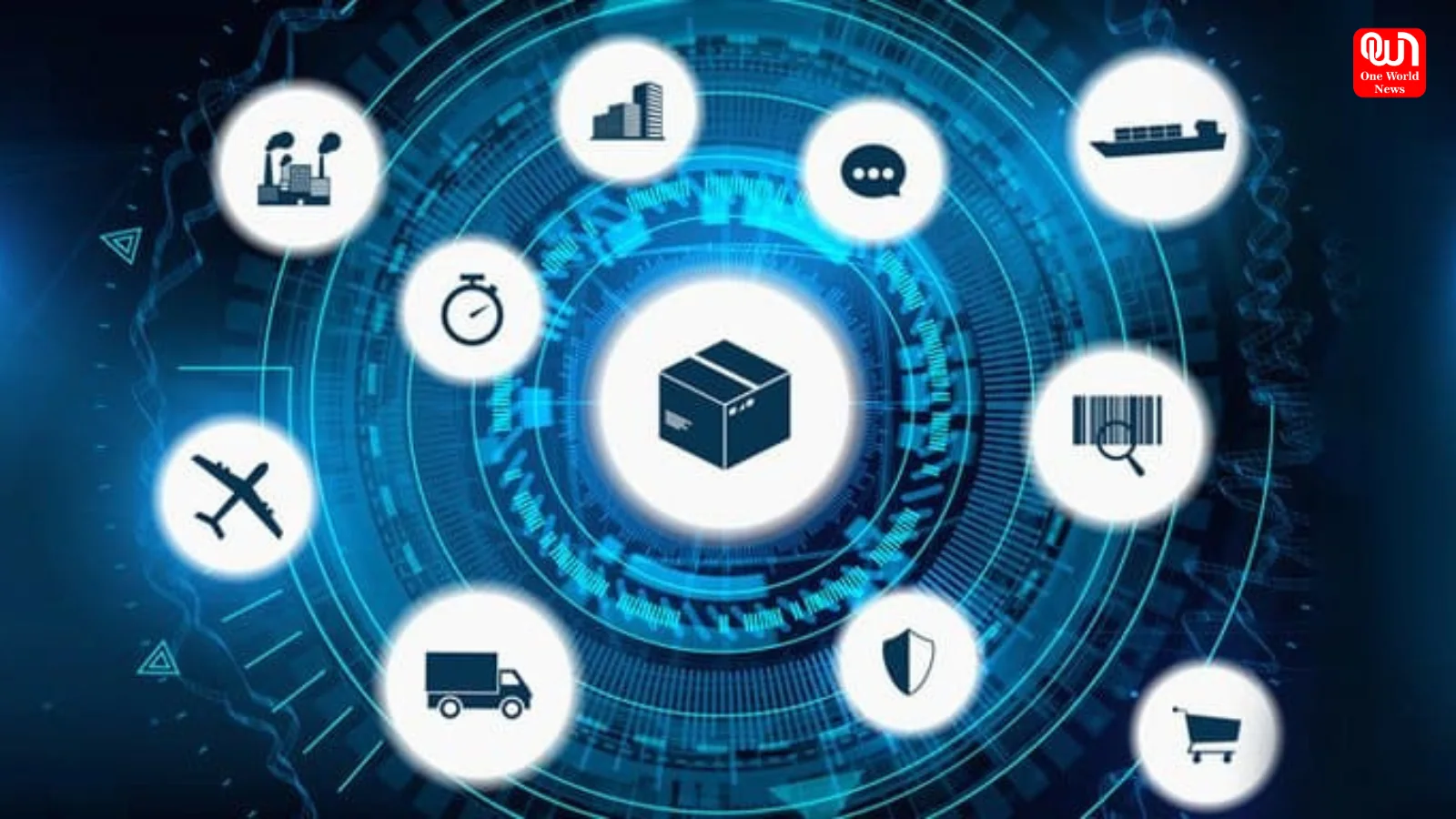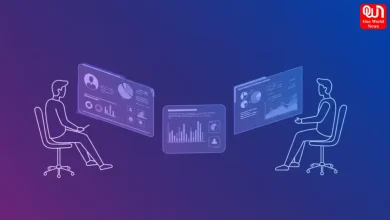The Future of Supply Chains: Preparing for Industry 4.0
The future of supply chains is rapidly changing with the advent of Industry 4.0, which is marked by the integration of advanced digital technologies like IoT, artificial intelligence, blockchain, and robotics.
The Future of Supply Chains: Preparing for Industry 4.0

The future of supply chains is rapidly changing with the advent of Industry 4.0, which is marked by the integration of advanced digital technologies like IoT, artificial intelligence, blockchain, and robotics. These innovations are transforming traditional supply chain operations by enhancing automation, data-driven decision-making, and real-time tracking. As businesses stable out for greater efficiency and agility, Industry 4.0 enables end-to-end visibility, predictive analytics, and improved collaboration across global networks. Preparing for this future means embracing digital tools and upskilling employees to manage complex, tech-driven operations. Companies that adapt quickly are likely to gain a competitive edge in an increasingly interconnected marketplace.
The Supply Chain in the Age of Industry 4.0
The rise of Industry 4.0 is revolutionizing supply chains, introducing advanced digital technologies that drive automation, connectivity, and data intelligence. In this new era, technologies such as IoT, AI, big data, and robotics are making supply chains smarter and more responsive. These tools enable real-time tracking, predictive analytics, and end-to-end visibility, transforming traditional supply chains into dynamic, data-driven networks. To effectively manage this transition, professionals need to understand both the technological landscape and the strategies for implementing these advancements.
A supply chain management course provides essential insights into these technologies and equips individuals with the skills to navigate the complexities of Industry 4.0. By covering topics such as digital transformation, logistics automation, and data analytics, such courses help learners stay current and adapt to emerging industry demands. This knowledge is invaluable for those looking to build resilient, agile supply chains capable of meeting the challenges and opportunities of a highly connected world.
Applications of Industry 4.0 Technologies in the Supply Chain
Here are some key applications of Industry 4.0 technologies in the supply chain:
- Internet of Things (IoT): IoT helps in real-time tracking of goods, providing data on location, temperature, and condition throughout the supply chain. This is crucial for monitoring perishable items or high-value products.
- Artificial Intelligence (AI): AI supports demand forecasting, inventory management, and predictive maintenance. By analyzing data patterns, AI helps optimize stock levels, reducing waste and ensuring product availability.
- Blockchain: Blockchain enhances transparency and security in supply chains by creating a tamper-proof ledger. This is especially valuable for verifying product authenticity and ensuring ethical sourcing.
- Robotics and Automation: Robots streamline warehouse operations, handling tasks such as picking, sorting, and packing, which improves efficiency and reduces human error.
- Big Data Analytics: Data analytics enables better decision-making by providing insights into customer demand, supplier performance, and logistics efficiency, helping companies optimize processes.
- 3D Printing: 3D printing allows for on-demand production, reducing lead times and inventory needs, especially useful in custom manufacturing.
These technologies transform supply chains, making them more efficient, responsive, and resilient to disruptions.
Benefits of Industry 4.0 Technologies
Here are some key benefits of Industry 4.0 technologies, transforming supply chains and production:
1. Enhanced Efficiency and Productivity
- Example: In warehouses, robotics and automation systems streamline sorting, picking, and packing tasks, significantly speeding up processes and reducing labor costs.
- Benefit: Automated systems can work continuously, ensuring faster and more consistent output without human error.
2. Improved Real-Time Visibility
- Example: IoT sensors allow companies like Amazon to track products in real-time, from storage to delivery, enhancing transparency.
- Benefit: Real-time visibility enables quicker response to issues like delays or damage, improving overall supply chain reliability.
3. Better Decision-Making with Data Analytics
- Example: Walmart uses big data analytics to predict product demand and optimize stock levels, minimizing waste and ensuring product availability.
- Benefit: Data-driven insights support accurate forecasting, helping businesses adjust to market demands efficiently.
4. Enhanced Security and Transparency
- Example: Blockchain technology in food supply chains helps track the source and quality of ingredients, benefiting companies like Nestlé and reducing fraud.
- Benefit: Blockchain ensures traceability and security, building trust with consumers and stakeholders.
5. Customization and Flexibility
- Example: 3D printing allows manufacturers to produce customized parts on demand, reducing inventory and meeting specific customer needs.
- Benefit: Industry 4.0 enables responsive manufacturing, catering to unique market demands while reducing costs.
Preparing for Industry 4.0
The future of supply chain management is set to be increasingly digital, interconnected, and data-driven as Industry 4.0 technologies continue to reshape the landscape. The integration of advanced technologies like AI, IoT, blockchain, and big data enables supply chains to become more agile, transparent, and efficient. These advancements help companies meet growing customer expectations for faster, more accurate deliveries and personalized products while also improving resilience against disruptions.
To prepare for Industry 4.0, organizations and professionals need to adopt a digital mindset, investing in automation and data analytics while cultivating the skills needed to manage these complex systems. Enrolling in a digital supply chain management course can provide a comprehensive understanding of these emerging technologies and their applications. By learning directly from industry experts, professionals gain hands-on experience with tools like predictive analytics, digital twin technology, and blockchain applications.
Such a course equips learners with the expertise to optimize processes, make data-driven decisions, and implement technology solutions effectively. As supply chains grow more sophisticated, knowledge in digital supply chain management is essential to stay competitive. This course prepares professionals to navigate the challenges and seize the opportunities of an Industry 4.0-enabled supply chain, positioning them for leadership in the future of supply chain management.
Looking ahead
The future of supply chains in the Industry 4.0 era is driven by digital transformation, integrating technologies like AI, IoT, blockchain, and robotics to create more agile, efficient, and resilient systems. As these advancements redefine how goods are tracked, managed, and delivered, businesses must adopt a proactive approach, embracing digital tools and up skilling their workforce. Preparing for Industry 4.0 involves continuous learning and adaptation to harness the full potential of these innovations. Companies that invest in technology and training are well-positioned to lead in this evolving landscape, meeting the demands of a fast-paced, highly connected global market.
We’re now on WhatsApp. Click to join.
Like this post?
Register at One World News to never miss out on videos, celeb interviews, and best reads.








